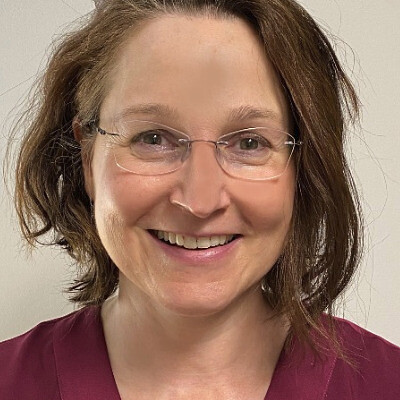Mastering My Stories: Behavioral Sciences Educators Develop Crucial Conversations Skills to Enhance Interprofessional Education
This Seminar builds upon a Lightning Talk presented at the 2024 Nexus Summit. The Department of Psychiatry and Behavioral Sciences at the University of Minnesota (UMN) Medical School has devoted a decade of effort toward bolstering its interprofessional education workforce. At the 2024 Summit, presenters shared results from a half-day workshop with faculty and learners on interprofessional collaborative practice. Feedback from participants following the workshop identified a relative weakness in communication - particularly related to conflict - in comparison with other IPEC competencies.
This Seminar will detail the department’s programmatic response to that result, .e., the development, implementation, and outcome evaluation of the Interprofessional Education Retreat aimed at enhancing interprofessional communication skills
On April 30th, 2025, the UMN Department of Psychiatry and Behavioral Sciences hosted a half-day retreat for its Behavioral Sciences supervisors (e.g., psychologists, social workers, marriage and family therapists, employment and education specialists, and peer support specialists) on the topic of Crucial Conversations skills in an interprofessional context with the understanding that not only are supervisors practicing on interprofessional teams themselves, but they are also responsible for training their learners to function effectively in an interprofessional team-based environment. Our retreat was specifically aimed at enabling clinical supervisors to recognize assumptions that may hinder effective interprofessional collaborative practice between members of the healthcare team. Addressing these assumptions effectively serves the important Quadruple Aim by improving the wellness of healthcare team members, which has been shown to boost quality of patient care, outcome and experience.
First, we will outline careful considerations during the conception and planning of this retreat such as the selection of format, logistics, and audience of the event.
Second, we will review the event agenda including briefly introducing the Crucial Conversations curriculum with a focus on the “Master My Stories” module. This content encourages participants to identify beliefs or biases that can negatively impact challenging interactions. We will demonstrate an active learning exercise for participants in this regard.
Third, presenters will review survey metrics collected from (a subset of) participants (n=15 of 20) following the UMN Department of Psychiatry and Behavioral Sciences 2025 half-day retreat. Key findings indicated an overwhelmingly positive response to the retreat including 100% of participants’ reporting an intent to engage in future interprofessional education activities, most reported increased knowledge about (and ability to hold) crucial conversations as well as intent to apply newly learned skills to their work.
Finally, we will discuss plans to advance this work by adapting the existing workshop to include learners. Based on retreat feedback, we plan to use a similar workshop format plus incorporate additional considerations for working with trainees (e.g., differentials in power vs vulnerability).
In support of improving patient care, this activity is planned and implemented by The National Center for Interprofessional Practice and Education Office of Interprofessional Continuing Professional Development (National Center OICPD). The National Center OICPD is accredited by the Accreditation Council for Continuing Medical Education (ACCME), the Accreditation Council for Pharmacy Education (ACPE), and the American Nurses Credentialing Center (ANCC) to provide continuing education for the healthcare team.
As a Jointly Accredited Provider, the National Center is approved to offer social work continuing education by the Association of Social Work Boards (ASWB) Approved Continuing Education (ACE) program. Organizations, not individual courses, are approved under this program. State and provincial regulatory boards have the final authority to determine whether an individual course may be accepted for continuing education credit. The National Center maintains responsibility for this course. Social workers completing this course receive continuing education credits.
The National Center OICPD (JA#: 4008105) is approved by the Board of Certification, Inc. to provide continuing education to Athletic Trainers (ATs).
This activity was planned by and for the healthcare team, and learners will receive Interprofessional Continuing Education (IPCE) credit for learning and change.


Physicians: The National Center for Interprofessional Practice and Education designates this live activity for AMA PRA Category 1 Credits™. Physicians should only claim credit commensurate with their participation.
Physician Assistants: The American Academy of Physician Assistants (AAPA) accepts credit from organizations accredited by the ACCME.
Nurses: Participants will be awarded contact hours of credit for attendance at this workshop.
Nurse Practitioners: The American Academy of Nurse Practitioners Certification Program (AANPCP) accepts credit from organizations accredited by the ACCME and ANCC.
Pharmacists and Pharmacy Technicians: This activity is approved for contact hours.
Athletic Trainers: This program is eligible for Category A hours/CEUs. ATs should claim only those hours actually spent in the educational program.
Social Workers: As a Jointly Accredited Organization, the National Center is approved to offer social work continuing education by the Association of Social Work Boards (ASWB) Approved Continuing Education (ACE) program. Organizations, not individual courses, are approved under this program. State and provincial regulatory boards have the final authority to determine whether an individual course may be accepted for continuing education credit. The National Center maintains responsibility for this course. Social workers completing this course receive continuing education credits.
IPCE: This activity was planned by and for the healthcare team, and learners will receive Interprofessional Continuing Education (IPCE) credits for learning and change.
Learners can claim CE credit by completing the Daily Evaluation.



